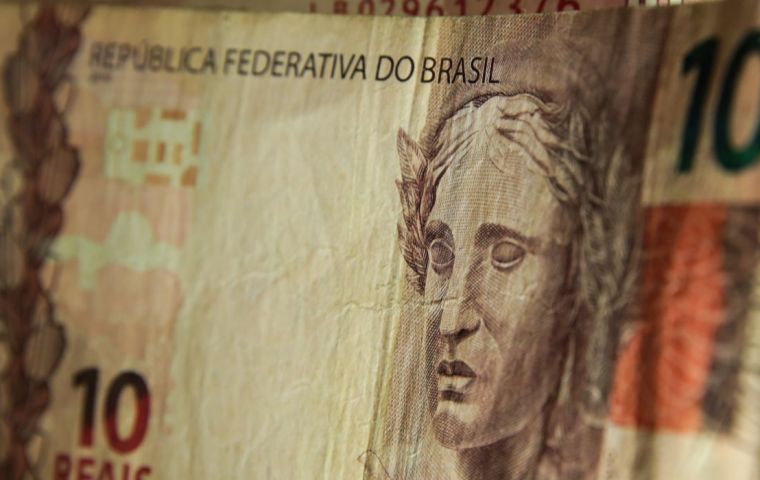MercoPress. South Atlantic News Agency
Higher economic growth, less inflation projected in Brazil
 Inflation below expectations stems from the appreciation of the Brazilian Real, Ipea said
Inflation below expectations stems from the appreciation of the Brazilian Real, Ipea said Brazil's Institute for Applied Economic Research (Ipea) has revised its forecasts and now foresees larger economic growth and smaller inflation this year, Agencia Brasil reported.
xxxxxxxxxxxxxxxxxxxxxxxxxxxxxxxxxxxxxxThe Conjuntura Overview released Wednesday expects the Gross Domestic Product (sum of all final goods and services produced in the country - GDP) to grow 2.2% in 2023. The previous forecast, until March, was for a growth of 1.4%. Inflation, on the other hand, should be lower. The forecast from the Macroeconomic Studies and Policies Directorate (Dimac) for the National Wide Consumer Price Index (IPCA) has gone from 5.6% to 5.1% in 2023.
According to the report, the revision of the GDP forecast for 2023 occurred after the growth in the first three months of the year exceeded Ipea's expectations. The institute's forecast for the period was a growth of 1.2% about the previous period, i.e. about the last three months of 2022, and that it would advance 2.7% compared to the first three months of 2022. Growth, however, was higher, at 1.9% over the previous quarter and 4% over the same period in 2022.
Inflation below expectations, in turn, is also due to the appreciation of the Brazilian Real, which together with the deflation of commodity prices results in a downward pressure on wholesale prices, leading to a scenario of disinflation in retail and consumer prices. For the rest of the year, therefore, the perspective is, according to the analysis released, one of stability.
The researchers detail some factors that contribute to the projected scenario. Among them, the increase in demand for Brazilian commodities, motivated chiefly by China's economic reopening. This year, Brazil has registered record monthly surpluses in the trade balance for the month, pulled by the increase in exports of commodities such as oil, iron ore, corn, and soybeans.
On the domestic front, Ipea points out two distinct forces in opposite directions. On the one hand, the maintenance for a prolonged period of high interest rates by the monetary authority, reaching the annualized average value of 45% in the credit market, bringing pressure on growth down. On the other hand, the fiscal measures that allow the support of family income, as well as the increase in public demand, both government consumption and public investment, boost growth.
Ipea also points out that new measures continue to act to support family income in the second quarter of the year, such as a new increase in the minimum wage, readjustment of the salaries of federal civil servants, anticipations of the salary bonus, and adjustments in the value of the Bolsa Família welfare plan.
(Source: Agencia Brasil)




Top Comments
Disclaimer & comment rulesCommenting for this story is now closed.
If you have a Facebook account, become a fan and comment on our Facebook Page!